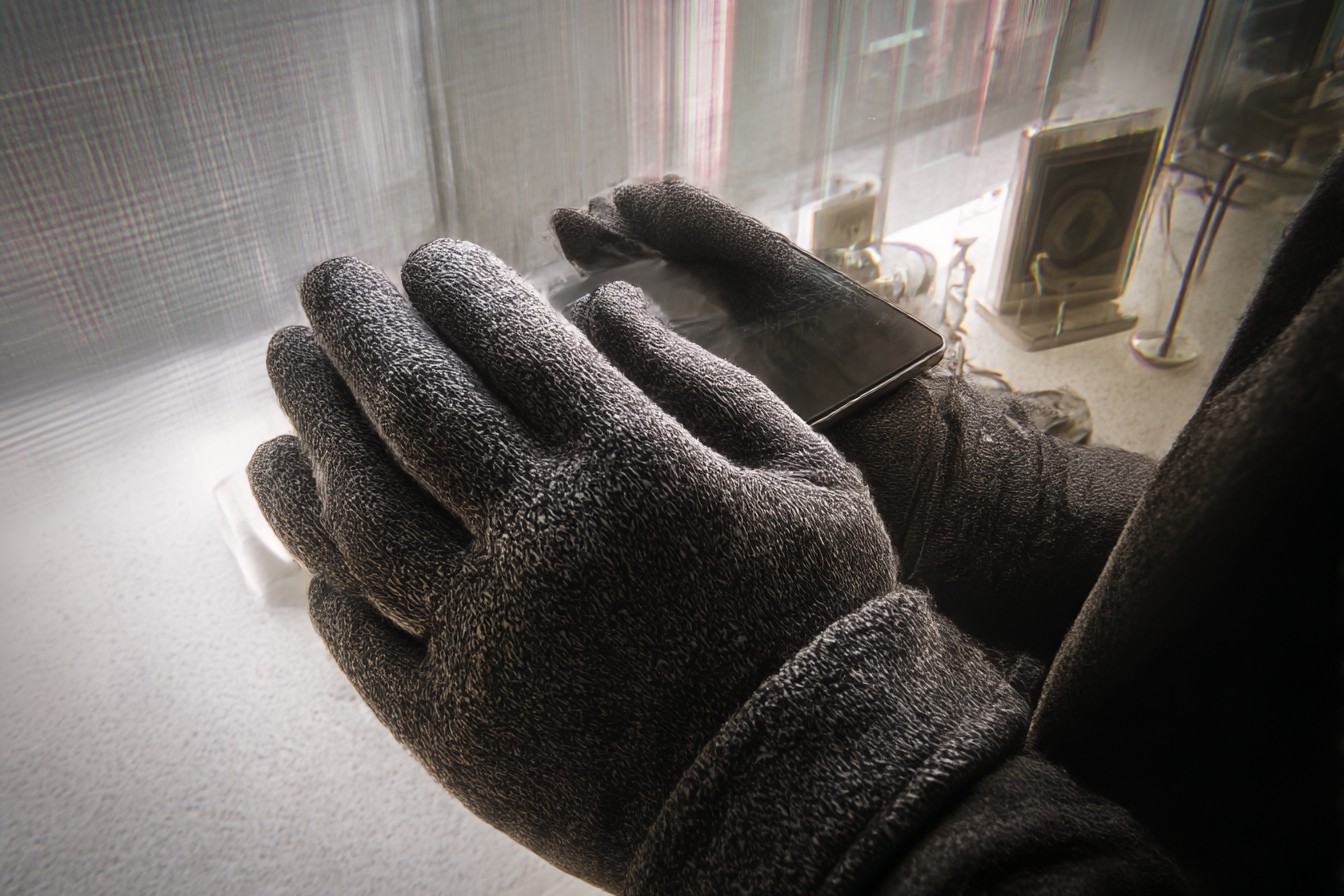It was never my plan to have a small robotic overseer tracking my every move. I received the fitness tracker as a birthday gift from my sister who has always believed that my life could be greatly improved if I was constantly monitored like a Cold War spy. “It’ll motivate you,” she said while looking at me eagerly as I opened the sleek black band.
“It counts your steps!”
Counting steps as transformative is quite a bold assumption. It’s as if the main barrier that stands between me and my optimal physique is the fact that I don’t keep count of how many times my feet touch the ground throughout the day. Still, even now, encouragement from my family piqued my curiosity enough to strap the device to my wrist.
Could this little gadget really help me live a better life? Was I a mere thirty-seven notifications away from attaining the ideal health my doctor has suggested but never achieved? The first day I had my new digital friend started with the device buzzing softly at 7:30 AM.
The screen lit up and displayed a little cartoon character doing jumping jacks while playing an overly excited and aggressive message: “Rise and shine! Let’s go!”
I had barely started my day with a coffee, and I was already let down by a wristwatch that had assumed the role of my aerobics instructor. A presumptuous piece of technology had set my schedule without my permission.
Eventually during my conference call, it came as no surprise I received vibes from the wearable tech, a small, judgmental pulsing which felt all too familiar now. “It is time to move!” the watch chirped, blissfully ignorant to the fact my continuing my call was far more important than doing a happy dance in my living room. The tracker, as I had to learn the hard way, works on some dubious principles:
First, that all movements by people are useful.
A step taken while pacing anxiously during a work crisis counts as much as a purposeful walk. The action of walking is what seems to matter most, irrespective of context or frame of mind. Forget the fact that I am in fact most productive when I am completely still.
Instead, the tracker only recognizes the virtue of movement at all times in a day. Second, that a person can set arbitrary goals in terms of figures and use them to structure physical activity. Step number 10,000, which now became my daily Everest, seemed much more like a marketing executive’s working day then a health professional’s.
Completing this goal-partially would only gain me the tracker’s cynical trophy of a question mark. My progress would be deemed unsatisfactory at best, being showcased by a red progress bar that sounded too much like defeat and an incomplete circle I can only imagine. Lastly, and more vexing something so personal like sleep can be reduced to a score.
Each morning, my tracker assigns me a number based on how well I slept the previous night, as if the intricately organized pattern of neurons shutting off and restarting can truly be measured by the motion of my left wrist over eight hours of semi-consciousness. “Sleep score: 68. You can do better!” was the comment made after my first night.
I looked at the score with confusion, was at wonder what criteria were set in place for my sleep. Did it try measuring the quality of my dreams? Did it know that I had woken up 3 times to my neighbor set their furniture at 2 in the morning?
Could it feel the worrying thoughts I had at 4:13 am? At the end of the first week, I had very odd associations with the gadget like it was some sort of a wrist bound critter. To improve my score, alcohol and soda consumption reduced complaints trips to the little to eat cooked up too add steps, whining wasn’t aimed towards the californian a possible during sun soaked ban.
I literally started pet vending during telephonic conversations. Once, I admit, I started countemy steps by swinging my arm like a pendulum while seated that perfectly illustrates Ikkifukidozogazonomonkh. The main grievance, however, stems from the app that is linked to my tracker: a digital command post for my personal tracking operations.
For my movements, resting patterns and heartbeats, I had bright colored captures and pie charts that were attentive to every minute detail. It made a “Wellness Report” for me that somehow made me feel inadequate on more than one level at once. As it turns out, this report stated that I was:
Taking 76% of my intended steps
Having unsatisfactory sleep (but effective?)
Not allocating enough of my time directly under the sun
Having a slower walking pace than needed
Not hitting the target physical activity for the hour
Having heart rate changes which suggested that stress was not being managed adequately
It almost told me that I had a life that was incorrect living in, but did not cross that line.
The message was clear, though. If I would move like this, sleep like that, and maintain the heart rate patterns sleep and health would be guaranteed. Even worse were the social functions.
To “connect with friends” and “avoid sedentary lifestyle,” the app suggested friendly competitions. Every one of us knows the best way to relate to each other is to measure how many minutes you walked in a day. I declined this feature just as swiftly as I would refuse an invitation to a public disclosure of my web search history.
And then came the notifications, oh the notifications. They started very gently, as prompts to move, drink water or even get ready for bed. However, they always grew insistently.
Each prompt was more annoying than the other, “Today’s a beautiful day to go for a walk, especially considering you’ve only walked 4382 steps today.” “Time for a movement break, you’ve been sitting for two hours.” “You actually have friends right? Don’t forget to keep up with them because they are crushing their step goals.” “Best to go to bed at the same time everyday. You might benefit from it seeing as your sleep patterns show irregularities.” “How are you doing, I ask because you seem to have been unusually non-active today.” The last notification was sent when I was absolutely shattered.
I had glued myself to my desk for hours on end, trying to meet my deadlines. The tracker thought I was in a fitness crisis. I very nearly threw it out the window.
Nonetheless, the most disturbing trait of the tracker by far is the almost celebratory attitude it has toward accomplished movements; finish your step goal and see a tiny digital fireworks display, complete the equivalent of 10 flights of stairs and cute balloons dance all over the screen. These tiny incentives hack into some more primitive part of the mind, revving a psychological loop that is embarrassingly effective. I found myself walking to the corner store instead of driving, not because I wanted exercise, but because I wanted to see the animation that confirmed I was a Good Person Who Moves Appropriately.
The most painful aspect of this occurred during a weekend trip to my parents’ house. On seeing the black band that encircles my wrist my mother asked me what it was. I offered some explanation of its function, trying to sound casual, like being monitored electronically is a lifestyle choice that is entirely normal.
“Oh,” she said, “so a house arrest ankle bracelet for lazy people, huh?”
At that moment, I have never loved my mother more. There is one simple reason why fitness trackers get it wrong: they believe awareness will lead to change, and improvement can be achieved through measurement alone. The belief that weighing yourself every day alters your relationship with food is akin to assuming checking your bank account hourly will make you save more.
In reality, fitness trackers induce a startling new form of anxiety: low-grade stress over not achieving a person’s personal record in activities they never even dared to dream of. I woke up thinking about how my sleep efficiency percentage would affect my tracker’s report. I felt guilty for taking the elevator instead of the stairs.
Something strange happened when I was all set for dinner. My wrist buzzed, and right there I received a notification saying, “Congratulations! You made it to 10,000 steps today!”.
The sense of satisfaction I felt was something I had experienced before. The endorphins triggered by digital validation. I then remembered the most alarming detail of today’s walk: I hadn’t noticed anything beyond this calculation, not the early sunset waning through branches, not the voice of the neighbor, not even the movement.
It was solely focusing on the number that got me, not the journey. While enhancing the world, we seem to have lost a part of it. Walking or ‘human movement’- as geometry calls it, is one of the few basic actions we can take in the world.
It is a very crucial part of us, and keeping it in a data point takes away all of its sensorial richness. Fitters gives you sensors that take away all the joy out of movement. Instead of breaking the boundary of consciousness, they claim we are more in touch with our bodies.
Smart as it sounds, metrics and algorithms do the thinking for us, replacing internal awareness with external measures. Instead of great feeling of body motion, a simple check of if we’ve reached a random target does the work. This means that I will not be throwing away my tracker, and the reason behind this is I cannot afford to be so clear and devoted.
I’ve come to some sort of middle ground with my electronic overseer: I wear it and check its data sporadically, but most of the notifications have been disabled and I’ve stopped checking the app every hour. A sort of peace treaty has occurred between my tracker and me, it’s still recording my steps, and I continue to ignore it’s judgment and the number of steps I should be doing and how active I should be. At times, I purposely forget to put the tracker on so that I can have a taste of that rare freedom of moving about without being monitored.
When this happens, I choose to walk without counting or sleep without scoring, or even exist without quantifying. It’s astonishing how humans have moved throughout the face of the world for the last thousands of years – with feelings on how their body feels rather than targets placed by silicon valley engineers. Maybe that is the most important lesson my fitness tracker has given me, even if it’s not what the designers wanted me to learn: Simply being a human being, where we stop measuring everything, is often the healthiest thing to do.
Sometimes, moving through life just to enjoy movement is all we need to do. But then again, maybe I am just trying to justify the fact that I do not hit 10,000 steps on a consistent basis. I’m sure my tracker would have something to say about that too.



